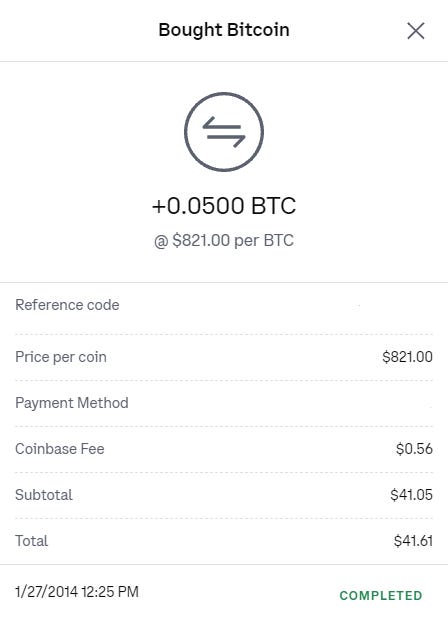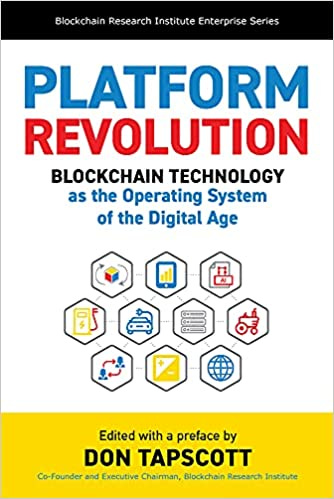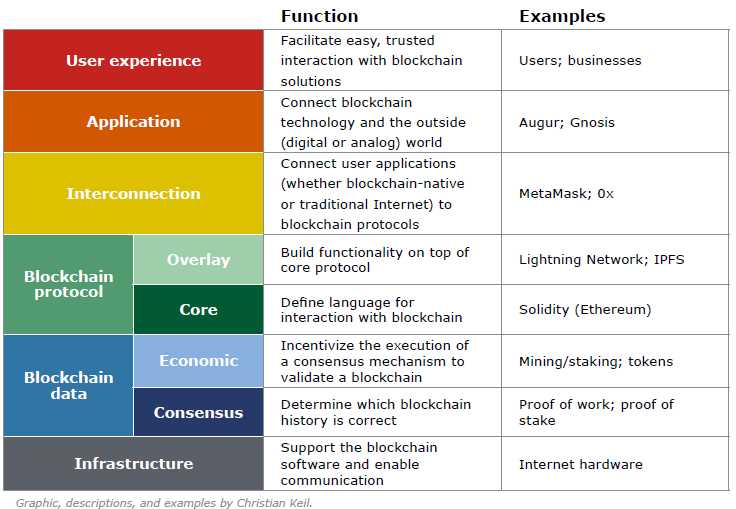Silicon Valley Outsider - How I came up with my startup idea
Something I wrote is being turned into a book! Here’s the full story, and what it taught me about the power of Silicon Valley’s concentration of people obsessed about creating a better future. Welcome, new subscribers! I’m Christian Keil, the Chief of Staff of Astranis, and this is my newsletter for startup-interested folks who live outside Silicon Valley. I usually write about stuff like how to find a business role at a startup and the best Silicon Valley books. This week, in honor of a new book that features my writing (!), I’m instead going to write about my time as a startup founder — specifically, what led me to start a company. Happy reading, and, as always, feel free to reach out! 🤓 I’ve always been in love with computers.I remember sneaking downstairs at my aunt’s house in Michigan to play PGA Tour ‘96 on MS-DOS, and stealing extra seconds of Prince of Persia before my day care lady made me run to catch the elementary school bus. I’ll never forget the day I first heard the dial-up modem say “oOoOoOopshhhkkkkkkrrrrPPPSSHHHRHHkakingkakingtshchchchHCHHCH” — which eventually led me to drill a hole through the ceiling to get an ethernet cable to my Xbox in the basement, convince my parents it was okay to buy things online, download Photoshop CS3 from LimeWire, “slice” custom website designs, and run my own phpBB instances. In fewer words, I have always been a nerd. For a long time, however, I was the only nerd that I knew — which led to me become a nerd in denial. I hid my nerdiest interests from my friends in high school and college, and decided to pursued “normal” majors like Psychology and Economics in college. Over time, I further distanced myself from my computer/internet hobbies and got a nice, normal career as a management consultant, mostly focusing on telecommunications (think AT&T and Verizon). Throughout the early years of my professional career, however, I came to two incredibly important realizations: 1) Businesspeople might own the present, but nerds own the future.2) The future of the internet was coming fast.Even in my dark night of the (nerdy) soul, I tried out new tech as I found it. When I came across a new kind of internet money in 2013, for instance, I gave it a try. I honestly didn’t think much of it at the time. The “Bitcoin” stuff I found was pretty cool, and I enjoyed playing around with the sketchy, primitive tools that let me access it, but it was still just a novelty. But in 2015, I learned about Ethereum, a new kind of digital money that also granted you access to a globally-run, infinitely-extensible computer. I had never heard of anything remotely like it — it was like its creator, Vitalik Buterin, was an alien dropped on Earth to show us galaxy-brain tech — and I was so excited by its possibilities that I fully reverted to my true, nerdy self. I quickly became convinced that Ethereum could do for the internet what internet did for computers. And I knew that I wanted to stay close as the newly-minted “blockchain” ecosystem continued to mature. From 2015-2017, I transitioned out of my career in consulting and into the world of entrepreneurship. As I’ve written about before, my risk-aversion led me to apply to business school and only move to Silicon Valley once I had a safety net secured. Once I got to Berkeley, I knew that I couldn’t go it alone: if I wanted to start a real company, I had to find my people.Luckily, living in Silicon Valley meant that I didn’t have to look far — it turns out that Berkeley had the world’s best blockchain club. Go figure! After plugging into the group, I was introduced to the Blockchain Research Institute (BRI), a think tank founded by Don Tapscott — who I immediately recognized as the guy who wrote the book on blockchain. Miraculously, he needed someone who knew both telecommunications and blockchain, so he brought me onto his staff to write a “Big Idea” white paper exploring the impact of blockchain on telecom. That paper became Distributed Connectivity: The Blockchain-enabled Future of Telecommunications, and led me to an idea that I thought to be compelling enough to launch a startup to pursue! If you’re interested, you can read more about that story here: Over the following years, I continued working with the BRI as a way to guide my own research into this new technology, and I eventually wrote five whitepapers for the group, two of which are now being turned into a book! Here’s a quick taste of what those two papers are about: Saving the Web
Standardized and Decentralized
Rekindling my nerdiness by diving deep into the blockchain world taught me a lot, but no lesson was more important than this: If you want to live at the forefront of new technology, you need to find compatriots that can catalyze your enthusiasm.
In short, the best way to successfully pursue what you love is to find people who can help you along the way.Writing for the Blockchain Research Institute has massively improved my understanding of the future of the internet, and I’m incredibly grateful that they’re turning my essays into a book that can reach even more people. If you’re still looking for your people, let me know — I’m happy to be the beginning of your Silicon Valley network, and to point you in the direction of other smart people who are just as obsessed about [the internet, gene editing, green tech, nuclear energy, …] as you are. Thanks for reading Silicon Valley Outsider! I’m Christian, the Chief of Staff of Astranis, and I write this newsletter for folks who are interested in startups but live outside of the SF Bay Area. If you want to join 500+ folks in getting an email from me each Monday, I’ll help you understand Silicon Valley using normal-human words. Here are a few past editions that you might like if you enjoyed this one: If you liked this post from Silicon Valley Outsider, why not share it? |
Older messages
Startups aren't as risky as you think
Monday, October 4, 2021
Especially when you're employee #101
Three lessons from a year of weekly writing
Monday, September 27, 2021
Tomorrow is the one-year birthday of Silicon Valley Outsider!
New technology has always been scary
Monday, September 20, 2021
What elevators and electricity can teach us about OpenAI and killer robots
Sneak preview: "New technology is always scary"
Tuesday, September 14, 2021
An upcoming mega-post about how consumers learn to trust innovators
Back to school, Silicon Valley-style!
Tuesday, September 7, 2021
What to do if you're a student interested in startups
You Might Also Like
BSSA #116 - Outsourcing to scale 🚀
Tuesday, March 4, 2025
March 04, 2025 | Read Online Hello everyone! The Wide Event is almost sold out. More than 90% of the tickets have been booked. If you're one of the people waiting until the last minute to purchase,
🔥 The secret factories big brands don’t want you to know 👗👖
Tuesday, March 4, 2025
The best fashion suppliers don't advertise—here's how to find them. Hey Friend , If you've ever struggled to find high-quality fashion manufacturers, there's a reason: The best
Making Wayves
Tuesday, March 4, 2025
+ Girls just wanna have funding; e-bike turf war View in browser Powered by ViennaUP Author-Martin by Martin Coulter Good morning there, Since 2021, VC firm Future Planet Capital (FPC) has secured more
Animal Shine And Doctor Stein 🐇
Monday, March 3, 2025
And another non-unique app͏ ͏ ͏ ͏ ͏ ͏ ͏ ͏ ͏ ͏ ͏ ͏ ͏ ͏ ͏ ͏ ͏ ͏ ͏ ͏ ͏ ͏ ͏ ͏ ͏ ͏ ͏ ͏ ͏ ͏ ͏ ͏ ͏ ͏ ͏ ͏ ͏ ͏ ͏ ͏ ͏ ͏ ͏ ͏ ͏ ͏ ͏ ͏ ͏ ͏ ͏ ͏ ͏ ͏ ͏ ͏ ͏ ͏
upcoming analyst-led events
Monday, March 3, 2025
the future of the customer journey, tech M&A predictions, and the industrial AI arms race. CB-Insights-Logo-light copy Upcoming analyst-led webinars Highlights: The future of the customer journey,
last call...
Monday, March 3, 2025
are you ready? ͏ ͏ ͏ ͏ ͏ ͏ ͏ ͏ ͏ ͏ ͏ ͏ ͏ ͏ ͏ ͏ ͏ ͏ ͏ ͏ ͏ ͏ ͏ ͏ ͏ ͏ ͏ ͏ ͏ ͏ ͏ ͏ ͏ ͏ ͏ ͏ ͏ ͏ ͏ ͏ ͏ ͏ ͏ ͏ ͏ ͏ ͏ ͏ ͏ ͏ ͏ ͏ ͏ ͏ ͏ ͏ ͏ ͏ ͏ ͏ ͏ ͏ ͏ ͏ ͏ ͏ ͏ ͏ ͏ ͏ ͏ ͏ ͏ ͏ ͏ ͏ ͏ ͏ ͏ ͏ ͏ ͏ ͏ ͏ ͏ ͏ ͏ ͏ ͏ ͏ ͏ ͏ ͏
🦄 Dimmable window technology
Monday, March 3, 2025
Miru is creating windows that uniformly tint—usable in cars, homes, and more.
Lopsided AI Revenues
Monday, March 3, 2025
Tomasz Tunguz Venture Capitalist If you were forwarded this newsletter, and you'd like to receive it in the future, subscribe here. Lopsided AI Revenues Which is the best business in AI at the
📂 NEW: 140 SaaS Marketing Ideas eBook 📕
Monday, March 3, 2025
Most SaaS marketing follows the same playbook. The same channels. The same tactics. The same results. But the biggest wins? They come from smart risks, creative experiments, and ideas you
17 Silicon Valley Startups Raised $633Million - Week of March 3, 2025
Monday, March 3, 2025
🌴 Upfront Summit 2025 Recap 💰 Why Is Warren Buffett Hoarding $300B in Cash 💰 US Crypto Strategic Reserve ⚡ Blackstone / QTS AI Power Strains 🇨🇳 Wan 2.1 - Sora of China ͏ ͏ ͏ ͏ ͏ ͏ ͏ ͏ ͏ ͏ ͏ ͏ ͏ ͏ ͏ ͏ ͏





